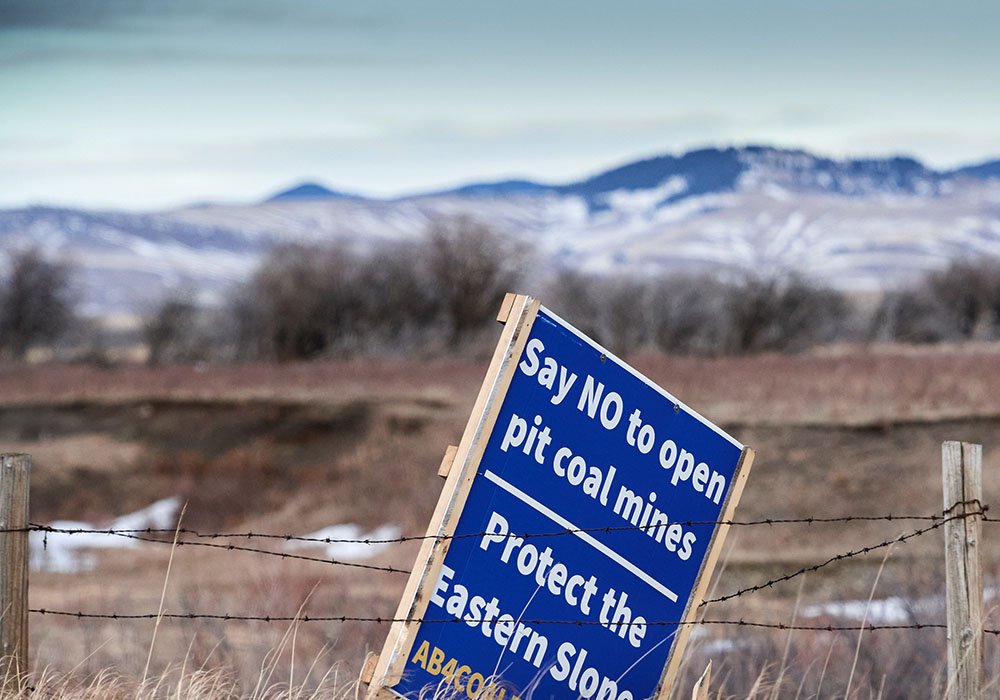Coal policy review wraps up in Alta.

A public engagement process that gathered input about a new coal policy for the province didn’t go far enough, says an environmental advocate.
The review by the Coal Policy Committee will affect the future of the Eastern Slopes of the Rocky Mountains, said Ian Urquhart, executive director of the Alberta Wilderness Association. The region contains the headwaters of rivers relied on by much of Western Canada, he added.
“I think the stakes are huge for ranchers and farmers, especially people who rely on irrigation and where water is a crucial component of their operations. They should be really concerned about new players coming into the game and demanding access to a resource that is increasingly in demand, or that they’re going to need to have a productive and prosperous future.”
However, the engagement program “has been an overwhelming success,” said an email from Fiona Salkie, director of Alberta Energy’s Coal Policy Secretariat. The email was shared at the request of Ron Wallace, chair of the coal policy committee that conducted the public engagement process.
Alberta Energy Minister Sonya Savage last year rescinded a 1976 coal policy, opening up much of the Eastern Slopes to potential open-pit coal mining.
Selenium and calcite were determined to have affected waterways in 2012 in the nearby Elk Valley of British Columbia, whose coal mines are in the same geological formation as that of proposed mines in Alberta. As a result, Teck Coal Ltd. was ordered to pay a record $60 million in fines under the federal Fisheries Act on March 26.
Thirty-five scientists at the University of Alberta sent a letter to Alberta’s MLAs stating April 16 that young animals, including humans, are acutely sensitive to toxins dissolved in water.
“There is no reliable method to stop leaching of hazardous waste produced by surface coal mining into groundwater where, inevitably, it will pollute precious watersheds we all depend on that are already under severe stress.”
Due to widespread opposition to open-pit coal mining in the Eastern Slopes, the province’s coal policy was reinstated Feb. 8 by Savage. The coal policy committee was formed in March to gather public input for a new policy.
Salkie said it received more than 652 submissions and 38 technical submissions, along with a further 46 submissions from meeting participants that were published online.
It also completed 62 meetings that included “over 50 different groups, municipalities, unions, associations and individuals. The committee has now entered into its Indigenous engagement, with several meetings having been completed with numerous Indigenous communities, including Metis, across Alberta in Treaty 6, 7 and 8 lands.”
Submissions were accepted until Sept. 19. The deadline was extended due to requests from several organizations and the committee is working on a Volume 1 report for Savage that is expected to be complete in mid-October, said Salkie.
Although Albertans were able to express their views about coal development, the absence of full public hearings by the committee has been a concern for Urquhart. Such hearings would have included the creation of transcripts where people could review what was said by participants, he said.
“I guess in terms of the process, if I was grading it, I would probably give (the committee) maybe a B or a B minus because they didn’t go far enough.”
Urquhart had hoped for public hearings similar to those of a joint review panel for the Alberta Energy Regulator (AER) that examined the proposed Grassy Mountain open-pit mine near Blairmore, Alta. The panel announced June 17 it had denied Benga Mining Ltd.’s application for the project.
The focus of the coal policy committee was also too narrow, said Urquhart. It should not only have been broadened to examine the impact of all activities in the Eastern Slopes in an era of climate change, it also should have looked at the region’s potential to create jobs through things such as tourism, he said.
Ranchers were alarmed when the provincial government recently announced it was entering into a new 20-year forest management agreement with Crowsnest Forest Products Ltd. Producers feared it could result in practices such as clear cutting by privatizing the management of about 867,587 acres of public crown land west of Lethbridge, affecting the headwaters of the Oldman River system.
“This is a landscape that a number of industries will want to use for their particular purposes,” said Urquhart. “We need an overall land use plan.”
Source: www.producer.com

